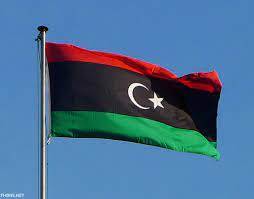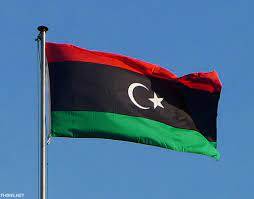The Secretary-General of the Arab League, Ahmed Aboul Gheit, expressed his concern regarding recent developments in Libya that could potentially lead to a return to the chaos that has afflicted the country in recent years. A responsible source in the General Secretariat of the Arab League stated that Aboul Gheit "relies on the presence of Libyan leaders in the political arena who understand the supreme interests of Libya and prioritize them above any narrow considerations."
The source added that "the hope is to reach a national position that agrees on the foundations and path to support the political process in Libya, in line with the commitments made by international and regional powers during prior international conferences on this matter, especially the outcomes of the Berlin 1 and 2 conferences."
The Arab League's concern regarding the situation in Libya coincided with the unanimous election of Fathi Bashagha as the head of the new government by the Libyan parliament, as announced by the council's official spokesperson, Abdullah Blehiq. Blehiq stated in a brief statement that "the council voted to grant confidence to Fathi Bashagha as the head of the government by a unanimous vote of those present... a governmental change by the parliament amid the announcement by the Head of the National Unity Government, Abdul Hamid Dbeibah, of his refusal to hand over power, during which his convoy was shot at last night."
### A Worrisome Situation
The capital of Libya is currently experiencing a state of anxiety and anticipation due to sporadic clashes between militias, which threaten imminent warfare following the parliament's decision today to declare Bashagha as the head of the new government. The peak of tension occurred on Thursday when armed men attacked a vehicle carrying Dbeibah and opened fire on him, but he escaped unharmed. Political researcher Mohammed Al-Hreiki confirmed that the decision to change the government "will not go unnoticed, as the situation could escalate in hours rather than days to come."
Al-Hreiki emphasized in his statements to "Sky News Arabia" that the parliament's action "also breeds division due to the unclear international stance regarding Bashagha's government and the possibility of its recognition being rejected." Over the past few days, violent clashes between armed militias in the capital have resulted in injuries and panic among citizens.
### Loose Weapons and Militias
The statements from the President of the Arab League also emphasized the importance of beginning to remove all forms of foreign military presence from Libyan territory, restricting the weapons to the official authority's hands only in the country, uniting military, security, and economic institutions, and providing full support to any authority in Libya that places these goals into actual implementation.
Libyan politician Ridwan Al-Fitouri stated that this crisis "threatens not only Libya but all neighboring countries due to the security breakdown that Libya is experiencing." He explained during his remarks to "Sky News Arabia" that "the accurate description of the current situation is an occupation by militias and mercenaries of the country." He added, "What has been imposed by force can only be removed by force," referring to the importance of forcefully expelling mercenaries and dismantling the weapons of armed militias "that know nothing about diplomacy and political processes."
Al-Fitouri called for "the necessity of benefiting from the support of neighboring countries, especially Egypt, for the efforts of the 5+5 military committee to expel mercenaries from Libya and unify the military institution, as these steps are the only guarantee for a real solution to the ongoing crisis in the country for a decade." He also praised the actions of the military committee, which he described as "active and sincere," aimed at expelling mercenaries and unifying the military institution.
On Wednesday, the city of Sirte in central Libya hosted the ninth meeting of the joint military committee (5+5), attended by a delegation from the United Nations Support Mission in Libya. According to a statement from the committee, the meeting discussed ways to maintain the ceasefire agreement and examine effective mechanisms for the complete withdrawal of mercenaries and foreign forces supporting them from Libya.
The committee also agreed to set a date to open the desert road connecting Bouqrein and Jufra at the next meeting, indicating that the international ceasefire monitoring team will commence its work once the withdrawal of mercenaries and foreign forces begins.
### Libya and Neighboring Countries
The Libyan street is betting on the role of neighboring countries in contributing to a solution to expel mercenaries and foreign forces. Libyan diplomat Salem Al-Warfali mentioned that "neighboring countries, led by Egypt, are working toward one goal only: to establish security to prevent chaos in the regional vicinity, which negatively affects everyone."
The Libyan diplomat explained to "Sky News Arabia" that "Egypt has worked and continues to find common ground among all Libyans to help them arrive at an integrated national vision that addresses the roots of the political, economic, and security crisis that Libya has suffered since 2011." One of the most prominent efforts was the launch of the "Cairo Declaration" initiative in June 2020 as a Libyan-Libyan initiative to resolve the crisis within the framework of United Nations efforts that explicitly reiterated the call for a political solution to the crisis, halting military operations and escalation, and ceasing fire.
Al-Warfali added, "The street trusts in Arab movements, especially neighboring countries, for establishing stability in a country that has suffered the consequences of fighting for ten years."
In turn, political researcher Idris Hamid commented: "The role of neighboring countries is the most active and sincere, given what Libya represents as a strategic and security depth for neighboring countries (Egypt, Morocco, Algeria, Tunisia, Sudan, Niger, and Chad)."
He pointed out that the role of neighboring countries, particularly Egypt, "significantly contributed, and was the core, to the ceasefire in Libya, to restore the political pathway and reach the international roadmap."
Researcher Idris Hamid reviewed in his statements to "Sky News Arabia" the efforts of neighboring countries, praising the role of Algeria, which hosted meetings on the crisis in cooperation with Tunisia, which also played an active role, despite its current internal issues. He also commended Morocco's role, which coordinated and significantly contributed to the Skhirat Agreement, which was strategically significant in the crisis and its political pathway.
Regarding Sudan's role, he stated: "It is trying to control the borders and help Libya overcome its crisis, despite facing its own internal challenges." As for Chad and Niger, he affirmed that they were "the most dangerous due to the infiltration of terrorist groups and Chadian opposition into southern Libya," stressing that Chad "is trying with all its might to secure its border with Libya."
Libya is currently in a sensitive and unclear situation, amid Arab and regional warnings against returning to square one, with the United Nations warning of worsening conditions. The spokesperson for the UN, Stéphane Dujarric, stated that matters "are going in the opposite direction."




